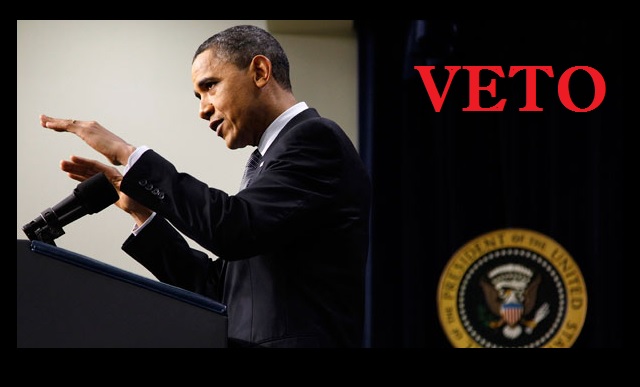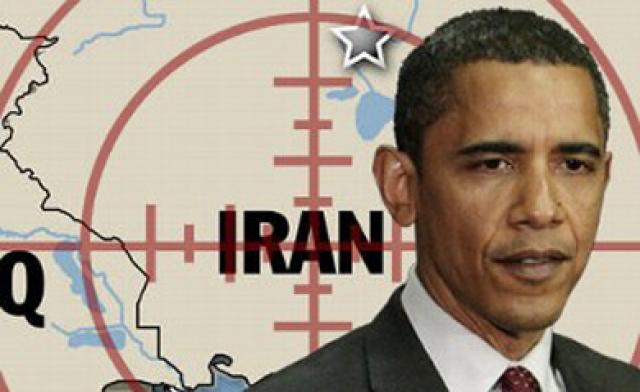Obama faces Veto Dilemmas at the United Nations and 114th Congress
As 2014 was closing a vote on a draft resolution introduced by the Jordanian UN Ambassador at the Security Council hit what may be a temporary speed bump for PA President Abbas. He is striving g to impose a draconian solution to the long simmering dispute on the Jewish nation of Israel. The draft resolution failed to achieve the requisite 9 votes, losing by one vote. The US and Australia voted no. Five others abstained including the UK, Lithuania, South Korea and Nigeria. France, Luxembourg, Russia, China, Jordan, Chile, Argentina, and Chad voted in favor of the draft resolution. The draft resolution sought to fix a one year deadline for negotiations on declaration of a Palestinian state with its capital in East Jerusalem based on the infamous War 1949 Armistice line. What fabled Israeli Foreign Minister Abba Eban deemed the “Auschwitz line”. The draft resolution would require the end of the alleged ‘occupation’ of the West Bank by Israel losing its control over the Jordan Valley approaches and protection of over 350,000 Israelis in both Samaria and Judea.
Virtually on the announcement of the vote, PA President Abbas, now serving in the tenth year of an elected four year term, signed 20 UN covenants including the Rome Treaty making it eligible for observer status at the International Criminal Court (ICC) at The Hague. That would enable it to bring a charge of war crimes against Israel. This will confront the ICC with a choice between recognition of anti-Israel issues versus international law matters. Further, the unilateral move by Abbas will likely cause the incoming GOP led Congress to consider retaliatory legislation further consternating Administration diplomacy in the region. Israeli PM Netanyahu countered saying:
The one who should fear the International Criminal Court at The Hague is the Palestinian Authority, which is in a unity government with Hamas, a declared terrorist organization like ISIS that commits war crimes.
We will take steps in response and we will defend the soldiers of the IDF, the most moral army in the world. We will repel this latest effort to force diktats on us, just as we have repelled the Palestinian turn to the UN Security Council.
US UN Ambassador Power blasted the PA vote because it precluded consideration of security guarantees outlined in UNSC Res. 242 for Israel to have defensible borders. She noted in her remarks, “The deadlines in the resolution take no account of Israel’s legitimate security concerns.” The State Department director of its press office, Jeff Rathke, criticized the PA saying:
We are deeply troubled by today’s Palestinian action regarding the ICC. Today’s action is entirely counterproductive and does nothing to further the aspirations of the Palestinian people for a sovereign and independent state.
Palestinian Resolution reprise Veto
Besides the ICC ploy, the PA was anything but supine. The change in the non-permanent membership of the UNSC might afford them another opportunity to re-submit the draft resolution, possibly obtaining the requisite 9 votes. As former US UN Ambassador John Bolton in a Wall Street Journal op Ed published today, “The U.N. Vote on Palestine Was a Rehearsal,” wrote, “An influx of new Security Council members means a likely ‘yes’ vote – and a veto dilemma for Obama.” Obama, as we have noted previously in Jeffrey Goldberg’s Atlantic interview gave a broad hint that the US might abstain.
Bolton notes in his WSJ op ed the elements of this dilemma that may shortly face the Administration:
A firmer U.S. strategy might have prevented the dilemma from arising. The White House’s opening diplomatic error was in sending strong signals to the media and U.S. allies that Mr. Obama, wary of offending Arab countries, was reluctant to veto any resolution favoring a Palestinian state. Secretary of State John Kerry took pains not to offer a view of the resolution before it was taken up. Such equivocation was a mistake because even this administration asserts that a permanent resolution of the Israeli-Arab conflict requires direct negotiations and agreements among the parties themselves.
No draft resolution contrary to these precepts should be acceptable to the U.S., or worth wasting time on in the diplomatic pursuit of a more moderate version. This American view, advocated for years and backed by resolute threats to veto anything that contradicted it, has previously dissuaded the Palestinians from blue-smoke-and-mirror projects in the Security Council.
Bolton addresses how the reprise could shortly occur:
Several factors support a swift Palestinian reprise. First, they obtained a majority of the Security Council’s votes, even if not the required supermajority of nine. In today’s U.N., the eight affirmative votes constitute a moral victory that virtually demand vindication, and sooner rather than later.
Second, the text of Jordan’s resolution was wildly unbalanced even by U.N. standards—for example, it demands a solution that “brings an end to the Israeli occupation since 1967,” and calls for “security arrangements, including through a third-party presence, that guarantee and respect the sovereignty of a State of Palestine.” A few meaningless tweaks here and there and several countries that abstained could switch to “yes.” Third, on Jan. 1 five of the Security Council’s 10 nonpermanent members stepped down (their two-year terms ended), replaced by five new members more likely to support the Palestinian effort.
Consider how Wednesday’s vote broke down, and what the future may hold. Three of the Security Council’s five permanent members (France, China and Russia) supported Jordan’s draft. France’s stance is particularly irksome, since it provides cover for other Europeans to vote “yes.” The U.K. timidly abstained, proving that David Cameron is no Margaret Thatcher; the abstention signals that a more “moderately” worded resolution might be enough to flip London to a “yes.”
Washington cast the only permanent member’s “no” vote, which is characterized as a veto only when nine or more Security Council members vote in a draft resolution’s favor. Will President Obama now have the stomach to cast a real veto against a U.N. Charter majority backing the Palestinians? Is this the point where the “liberated” Mr. Obama allows a harsh anti-Israel resolution to pass?
Happy New Year, Jerusalem.
He notes the lineup of new rotating non-permanent members in the UNSC that could tip the vote over the required 9 votes:
Three “yes” votes came from Jordan, Chad and Chile, which all remain Security Council members in 2015. Two additional supporters, Argentina and Luxembourg, have been replaced, respectively, by Venezuela (no suspense there) and Spain. Spain narrowly won election in October, defeating Turkey after three ballots. Madrid might be expected to support Washington, but not necessarily, given recent EU hostility to Israel and the appeasers’ argument to soothe wounded Muslim feelings about Turkey’s loss by backing the Palestinians.
Only Australia joined the U.S. in voting “no.” Its successor, New Zealand, would either have abstained or voted affirmatively, according to Foreign Minister Murray McCully.
South Korea abstained, but its replacement, Malaysia, is a certain affirmative vote. Angola, taking Rwanda’s seat, is an abstention at best. While abstainers Lithuania and Nigeria remain, Nigeria’s Boko Haram problem could easily move it to “yes” as an olive branch to the Muslim world. And Lithuania, as a new member of the euro currency union, could well succumb to arguments for EU solidarity, especially if Britain also surrenders.
Bolton notes in conclusion:
The Obama administration can only prevent what it dreads by openly embracing a veto strategy, hoping thereby to dissuade pro-Palestinian states from directly confronting the U.S.
And if that fails, the veto should be cast firmly and resolutely, as we normally advocate our principles, not apologetically. As so often before on Middle Eastern issues, a veto would neither surprise nor offend most Arab governments. If the Administration had courage enough to make clear that a veto was inevitable, it would minimize whatever collateral damage might ensue in Arab lands. But don’t hold your breath.
Iran Sanctions Veto
However, this is not the only veto dilemma facing the Administration in 2015. On Tuesday, December 30, 2014, Reuters reported that Undersecretary of The Treasury for Finance and Terrorism, David Cohen issued new financial sanctions “against nine targets who Washington says have helped Tehran avoid existing sanctions or commit human rights abuses.” The IRNA news agency noted these comments by an Iranian foreign ministry spokeswoman, Marzieh Afkham saying: “At a time negotiations are underway with P5+1, such a move raises doubts about America’s intentions and violates the good will principles” “This action is for mere publicity and will have no bearing whatsoever on our commercial policies,”
Just prior to the onset of Republican control of the 114th Session of Congress on January 6, 2015, Illinois Senator Mark Kirk gave an interview on December 28, 2014 on Fox News Sunday following statements by South Carolina Senator Lindsey Graham that new sanctions against Iran’s nuclear program may be brought up for an early vote.
That followed an NPR interview with President Obama that he might be prepared to use his veto authority on specific legislation passed by the new Congress. Kirk in the Sunday Fox interview indicated that 17 Democrats, including New Jersey’s Bob Menendez and New York’s Charles Schumer may have the requisite votes to pass new stronger sanctions legislation against Iran’s nuclear program in view of the Islamic regime fobbing off failed P5+1 negotiations . Those 17 Democratic Senate votes would make such a measure veto proof. This puts President Obama in a difficult situation regarding his engagement of the Islamic Regime in Tehran. A regime that has successfully outmaneuvered the P5+1 and Administration and likely has already achieved nuclear breakout. Omri Ceren chronicled this in a Commentary article,“Enabling Iran’s Nukes” saying, “The lies began at the very beginning with American assurances had secured a ‘halt’ in Iranian nuclear program.” This is a matter of great concern to Israel’s PM Netanyahu who would support such Congressional action on tougher Iran sanctions. Watch the Fox News interview with Sen. Kirk.
Iran is feeling the ravaging of its economy due to the loss of revenue from oil and gas production. Given the precipitous fall in world energy prices, due in part to the drop in demand and the vaulting of US energy production to first rank in 2015. That has forced Iran to suggest that fellow OPEC member Saudi Arabia cooperates to cut production. This is an unlikely prospect since the Saudis are unwilling to relent given their $750 billion dollar hard currency reserve cushion.
We shall shortly see whether President Obama will issue vetoes at the UNSC against a reprise of the Palestinian draft resolution and another against tougher sanctions legislation passed on a bi-partisan basis in the new Republican controlled Congress against the Iranian nuclear program.
EDITORS NOTE: This column originally appeared in the New English Review.


